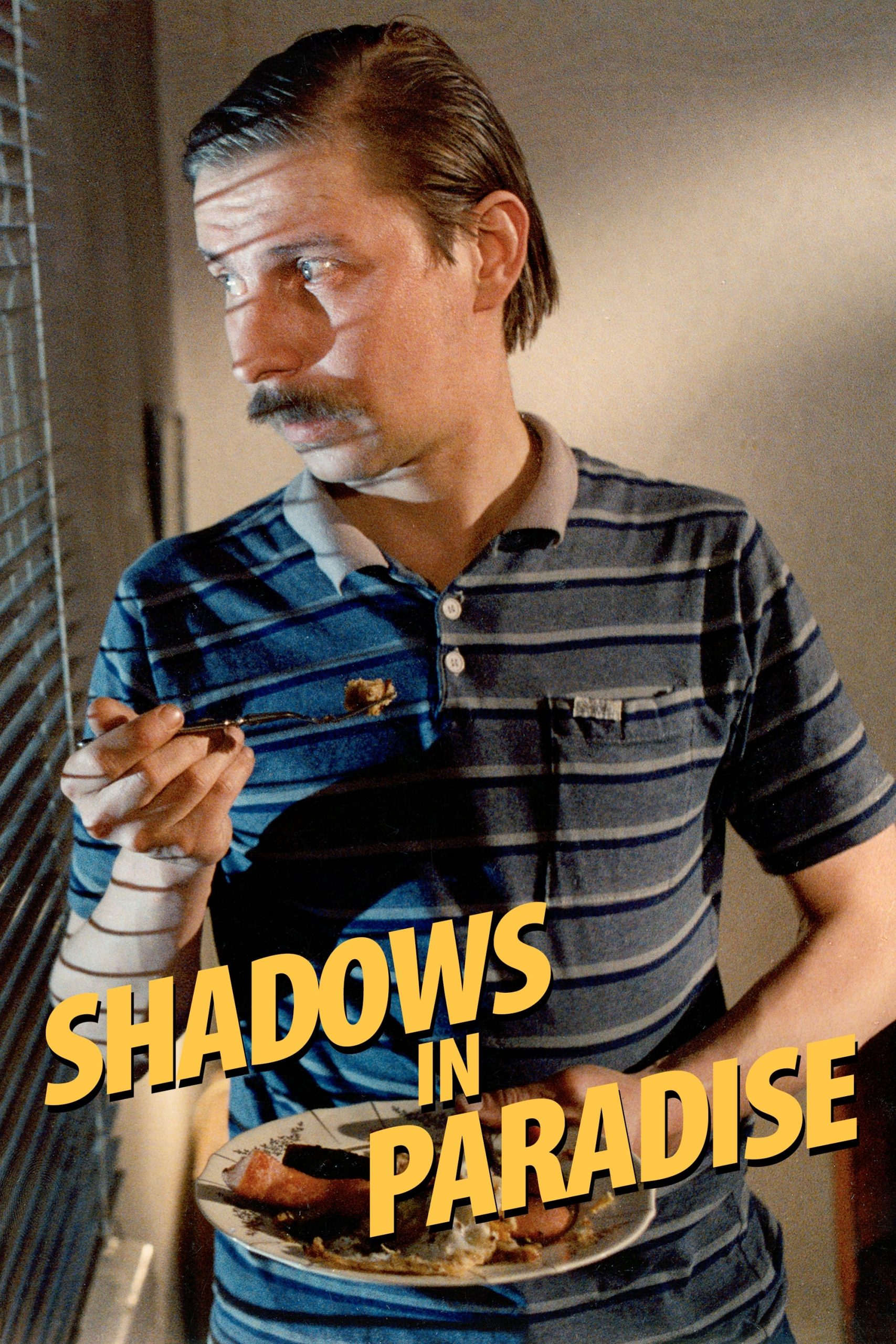
Nikander, a rubbish collector and would-be entrepreneur, finds his plans for success dashed when his business associate dies. One evening, he meets Ilona, a down-on-her-luck cashier, in a local supermarket. Falteringly, a bond begins to develop between them.
09 Feb Shadows in Paradise (1986)
Foreground, Hinted Background
I am attracted to ambitious films, ones that challenge and that have a lot of powerful layered machinery. It is how I build my life.
They are work. Art is work if you intend to collect and use it as fuel. So when you refine your notions about which films are worth the effort, you implicitly also make decisions. There are the films that aren’t worth the precious time you have left, of course. But along the way you also find those films and filmmakers you can relax with. Instead of putting your whole soul on the line, you can just find a groove and relax.
I only knew this filmmaker from ‘The Man with No Past,‘ and that had a little too much bitter in the bittersweet. This is apparently his first film in that form. It isn’t something he invented, but because he is Finnish, it may be the most effective distillation of it.
There are two characteristics. One is the very careful flattening into two cinematic worlds. One is very straightforward: things are as they seem. People are no more than what you encounter: their inner selves are worn on their faces. You see all the way to the bottom. The encounters are simple, here we have simple friendship: two guys meet in jail. They are friends before the first one even wakes up to an offered cigarette. (There is more smoking in this film than I think I have ever seen.) There is the simplest reduction of romance, or rather the cinematic romance of the date movie.
This always runs the risk of being cartoonish, or cloying, or even just boring, no matter how genuine. The second world is one of cinematic dreams, of what you really dream when you awake and think it was of love. It is highly economical, and deeply symbolic. A best friend of 25 years dies suddenly, someone we have invested in, someone with plans that will have formed the basis of the movie to come, we expect. Ten seconds and he is gone.
As soon as we get the minimum information, almost as sparse as a Rockwell painting, we have a shot of a black dog running away under a garbage-strewn elevated road. That also is only a few seconds, but it gives us the shadows, the dream foundation, and is so richly evocative we instantly collaborate by filling in what we know from our dreams, the fears, sadness, disorder of death.
In most filmmakers, this second world is shoved in your face and delivers humor, or perhaps some delivered allegory. And that is where the power of detachment comes in. Nordic people are famously flat emotionally, but among them, Finns are extreme. And is seems that among Finns, Kaurism??ki is extreme. Both of these layers are presented in an Anti-Hitchcock fashion. The camera has no identity, makes no judgement, has no dreams.
Both worlds are delivered with no emotional content and an absolute minimum of structure. All you do is pour in your own, which you can do, but only because there is a shadow layer that affirms dreams.
I am tempted to say that the love story is the same, folding the foreground of the garbage collector and the dreams he has as the woman he falls in love with as instantly and effortlessly as every other raindrop in this film.
Posted in 2011
Ted’s Evaluation — 3 of 3: Worth watching.


No Comments